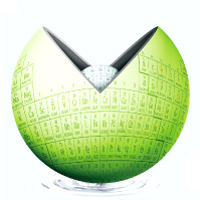
Published for geochemistry community from Geochemical Society of Japan.
Geochemistry of the Mirador Formation (Late Eocene-Early Oligocene), southwestern Venezuela: Chemostratigraphic constraints on provenance and the influence of the sea level
Geochemical Journal, Vol. 39, No. 3, P. 213-226, 2005
ABSTRACT
A geochemical study was carried out on Eocene-Lower Oligocene sedimentary rocks (the Mirador Formation) from the southern Lake Maracaibo Basin, western Venezuela. The goal of this work was the identification of source rock composition and tectonic settings of source areas, and their temporal changes. The geochemistry was also used to investigate attributes of the paleoenvironment. Eighty-nine rock samples were collected and the bulk inorganic geochemistry (Al2O3, SiO2, TiO2, Fe2O3, MnO, CaO, MgO, K2O, Li, B, Sc, V, Cr, Ni, Zn, Rb, Y, Mo, La, Ce and Th) was determined by ICP-AES; total sulfur was determined in a LECO SC-432 analyzer. Multivariate statistical tools were employed to evaluate the correlation between the different variables. Through cluster-constrained analysis, four subdivisions, or main chemofacies, were defined and correlated with the significant lithologic units. The tectonic setting for the source rock could be a passive margin, and a mixed source was inferred, consisting of recycled sedimentary rocks and igneous and/or meta-igneous rocks of predominantly felsic composition. The most marine-influenced lithological units occur at the bottom of the section.KEYWORDS
chemostratigraphy, provenance, geochemistry, Venezuela, paleoenvironments- Published : 2005
- Released on J-STAGE : -
- Received : 2004/05/17
- Accepted : 2004/11/09
- DOI : https://doi.org/10.2343/geochemj.39.213
- J-STAGE URL : https://www.jstage.jst.go.jp/article/geochemj/39/3/39_3_213/_article/-char/ja
- J-Online ISSN: 1880-5973
- Print ISSN : 0016-7002
- ISSN-L : 0016-7002
All Issues
- Vol.59, 2025
- Vol.58, 2024
- Vol.57, 2023
- Vol.56, 2022
- Vol.55, 2021
- Vol.54, 2020
- Vol.53, 2019
- Vol.52, 2018
- Vol.51, 2017
- Vol.50, 2016
- Vol.49, 2015
- Vol.48, 2014
- Vol.47, 2013
- Vol.46, 2012
- Vol.45, 2011
- Vol.44, 2010
- Vol.43, 2009
- Vol.42, 2008
- Vol.41, 2007
- Vol.40, 2006
- Vol.39, 2005
- Vol.38, 2004
- Vol.37, 2003
- Vol.36, 2002
- Vol.35, 2001
- Vol.34, 2000
- Vol.33, 1999
- Vol.32, 1998
- Vol.31, 1997
- Vol.30, 1996
- Vol.29, 1995
- Vol.28, 1994
- Vol.27, 1993
- Vol.26, 1992
- Vol.25, 1991
- Vol.24, 1990
- Vol.23, 1989
- Vol.22, 1988
- Vol.21, 1987
- Vol.20, 1986
- Vol.19, 1985-1986
- Vol.18, 1984
- Vol.17, 1983
- Vol.16, 1982
- Vol.15, 1981
- Vol.14, 1980
- Vol.13, 1979
- Vol.12, 1978
- Vol.11, 1977
- Vol.10, 1976
- Vol.9, 1975
- Vol.8, 1974
- Vol.7, 1973
- Vol.6, 1972-1973
- Vol.5, 1971
- Vol.4, 1970-1971
- Vol.3, 1969-1970
- Vol.2, 1968
- Vol.1, 1966-1967
Current Issue:
Stats:
Impact Factor: 1.6 (2024)
Submission to final decision: 9.6 weeks (2022)




